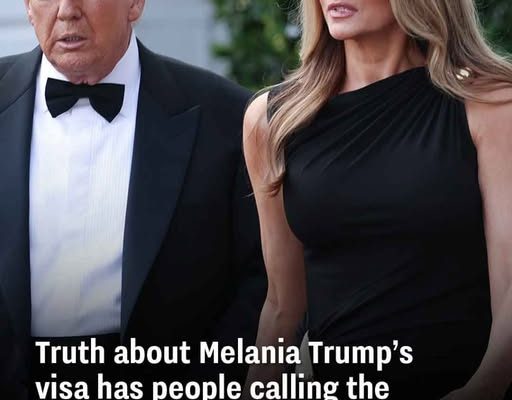Melania Trump’s immigration past is once again making headlines—this time, not because of anything she said or did recently, but because a member of Congress publicly questioned the legitimacy of her entry into the United States. During a tense House Judiciary Committee hearing on June 25, Texas Representative Jasmine Crockett cast a critical spotlight on the former First Lady’s use of the EB-1 visa, known informally as the “Einstein visa.”
This particular visa category is typically reserved for individuals with “extraordinary ability”—a group that usually includes Nobel Prize winners, Olympic athletes, world-renowned scientists, and industry trailblazers. Melania Trump, who received the visa for her work as a fashion model, has long drawn side-eyes and skepticism about how she met such rigorous standards. Crockett didn’t hold back, telling the committee, “It doesn’t take an Einstein to see that the math ain’t mathin’ here.”
The moment quickly went viral, sparking renewed debate about immigration privilege, double standards, and political hypocrisy. Social media lit up with commentary, much of it focused not only on Melania but on Donald Trump’s well-known anti-immigration rhetoric. One Reddit user summed it up bluntly: “The guy who spent years waging war on immigrants married two of them, and somehow that’s not supposed to matter?” Others took a darker comedic tone, with sarcastic posts imagining ICE agents dragging Melania from a nail salon—echoing the harsh enforcement tactics sometimes used on undocumented migrants.
Melania officially became a U.S. citizen in 2006. According to publicly available information, she entered the country on a work visa in the 1990s and later obtained her EB-1 in 2001, five years before her citizenship and a year after marrying Donald Trump. But critics argue that her access to this elite visa was likely fast-tracked not by her résumé, but by the financial and legal resources of her future husband. The implication: had she not been dating a billionaire with political connections, her application might not have stood a chance.
When pressed further, Crockett pointed out the contradiction in Trump’s immigration stance—particularly the way he framed undocumented immigrants as threats to national security and called for bans, walls, and mass deportations. “How can the same administration that called immigrants criminals also reward them with elite status—just because they had the right connections?” she asked.
The debate has reignited long-standing questions about fairness and bias in America’s immigration system. Who gets a chance to stay? Who gets deported? And how much of it comes down to merit vs. money? Even Melania’s defenders have found it difficult to make a case that she met the same standards expected of, say, a Nobel physicist or a Pulitzer-winning author.
To date, the Trump camp has not issued any formal response to Crockett’s comments, nor has the former First Lady addressed the matter publicly. But that hasn’t stopped the public from weighing in. The story continues to spread across news outlets, blogs, and forums, where opinions are split sharply along political lines.
Supporters of Donald Trump dismiss the controversy as politically motivated nitpicking. “She got a legal visa. End of story,” one conservative pundit tweeted. But opponents say that’s precisely the point: legality doesn’t always mean equality—and it certainly doesn’t mean fairness. They argue that Melania’s case represents the larger issue of how money and status can open doors in the U.S. immigration system that remain firmly locked for others.
At its core, this latest controversy touches on more than just one woman’s visa. It’s about credibility. It’s about how a political figure who built his brand on tough-on-immigration policies may have benefitted from the very system he sought to restrict. And for many, it highlights how the rules of the game seem to shift depending on who’s playing.
In a nation still deeply divided over immigration, Jasmine Crockett’s comments may not change policy—but they’ve reignited a conversation that won’t go away quietly. Whether Melania’s visa process was a fair use of the EB-1 category or a blatant misuse of privilege, the underlying issue remains: America’s immigration system doesn’t just need reform. It needs transparency, accountability, and consistency. And maybe a little less hypocrisy.



